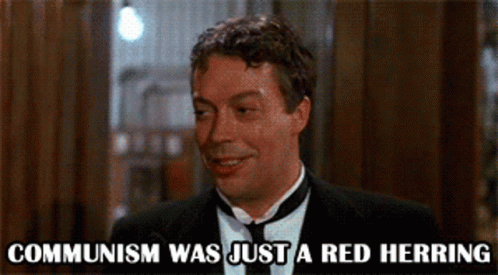
Posted on 02/24/2022 10:03:51 AM PST by Kaslin
It’s been said that “peace is that brief, glorious moment in history when everybody stands around reloading.” For the brief moment between the two global wars of the 20th century, everybody who could afford it stood around gloriously drinking champagne.
The sorrows of the Great War weren’t only personal — they launched a generation into the indulgence and excess that have become trademarks of their era. Perceiving the fragility of life, the partiers of the 1920s and ’30s took the eat-drink-and-take-pleasure advice of Ecclesiastes to heart, often in a less than biblical manner. A century later, the glamor still fascinates us, a window into a fleeting cocktail party on which a second world war and the rest of history quickly shut the door.
The mystique surrounding that era creates a perfect stage for a mystery story like Agatha Christie’s “Death on the Nile.” Kenneth Branagh’s screen adaptation, released this month after numerous setbacks, follows glamorous newlyweds Linnet Ridgeway (Gal Gadot) and Simon Doyle (Armie Hammer) and their friends on their glittering honeymoon cruise down the Nile. When a murder disrupts the party, detective Hercule Poirot (played by Branagh) must solve the case, reprising his exploits in “Murder on the Orient Express.”
The movie exquisitely captures the warm luxury and charisma of the era, so much so that the rest of the movie’s merits are almost overshadowed. That’s not to say the movie lacks substance or plot altogether, but it does feel like substance and plot weren’t the filmmakers’ central concern.
Everything about the film is rich and excessive, from the extravagant costumes to the sensual blues music to Gadot’s declaration that the party has “enough champagne to fill the Nile!” Even the lighting choices jump back and forth dramatically between dazzling sunny scapes and moody nightclub hues.
With nearly a dozen passengers on board, the lineup of potential suspects is long. This is another instance of the movie’s excess — with so many characters, we hardly get the chance in the two-hour-plus movie to develop attachments to any of them, despite the cast’s talented performances across the board. (This is probably the movie’s biggest flaw.) The motives each guest might have for murder are hard to believe because we just don’t get a chance to see very deeply past their colorful, Clue-character personas.
It’s curious that this movie, which finished shooting before Covid, put Hollywood and many other industries on pause. Slated for an original release in December 2019, the film was pushed back multiple times due to Covid, Disney’s acquisition of Fox, and — rumor has it — the sex scandal plaguing Hammer (the fact that it had already been filmed when allegations against him surfaced was blamed for the decision not to recast his lead role).
But “Death on the Nile” oozes with all the maximalist escapism you’d expect studios to produce for audiences who are sick of Covid restrictions, economic woes, and general malaise. The first hour of the movie, all before the murder even happens, is one giant fest of overstimulation. There’s music, dancing, champagne clinking, balloon stomping, exotic travel, elegant dresses. It’s the party we all said we’d throw post-Covid, times thousands of dollars.
To add to its charm, the opulence is warm and inviting, unlike the cold minimalism that’s presently in vogue from tech company branding to gender-neutral clothing. It’s an old brand of extravagance, but at the same time, the movie is constantly aware of its photogenic backdrop — like some Instagrammer always on the hunt for the perfect shot.
Augmenting the over-the-top display is the striking contrast of the opening vignette, which offers a black-and-white glimpse into Poirot’s history as a World War I soldier. It “launches the film on a note of shock and heartbreak,” wrote Christy Lemire for Roger Ebert, adding, “I would rather have watched the rest of that movie; it had texture and verve to it.” In contrast, the rest of “Death on the Nile” doesn’t appear bad, just vaguely bubbly — like a glass of champagne next to a filling meal.
As cinematic champagne, “Death on the Nile” does just fine. It’s alluring, well-acted, and easy on the eyes. But if you’re hungry for something heartier, it may not satisfy you.
Plus. We already know who did it.
Anyone other than David Suchet doesn’t seem like Poirot to me...he just played that character for so long...flawlessly.

I don’t. Don’t tell me.
Written by a bourgeoisie.
Now, how can I use that obvious fact to annoy Woke turds?
Agreed. Suchet was perfect. I read several of the books. Cannot imagine anyone better. I have his entire series on Blu-ray. In the Suchet version of Death on the Nile the wife was played by Emily Blunt in an early role.
I also liked the Ustinov version of Death on the Nile, but Ustinov always seemed to rumpled-looking to be Poirot.
Professor Plum in the study with 5he candlestick.
I think 85 years after publication is outside the window where you can expect “spoiler warnings”.
I agree.
"Poppycock! The butler did in the kitchen with a revolver!"
“Butler?”
David Suchet is the definitive Poirot
That’s one of my favorite movies.
I saw the Ustinov movie as a kid many years ago, but I don’t remember who the killer was. I do remember that Angela Lansbury’s character got shot right between the eyes before she was about to reveal who it was. I’m curious to see how they recreate that scene.
Armie Hammer......seriously?......that pervert!
I believe it was Mia Farrow!!!
Disclaimer: Opinions posted on Free Republic are those of the individual posters and do not necessarily represent the opinion of Free Republic or its management. All materials posted herein are protected by copyright law and the exemption for fair use of copyrighted works.